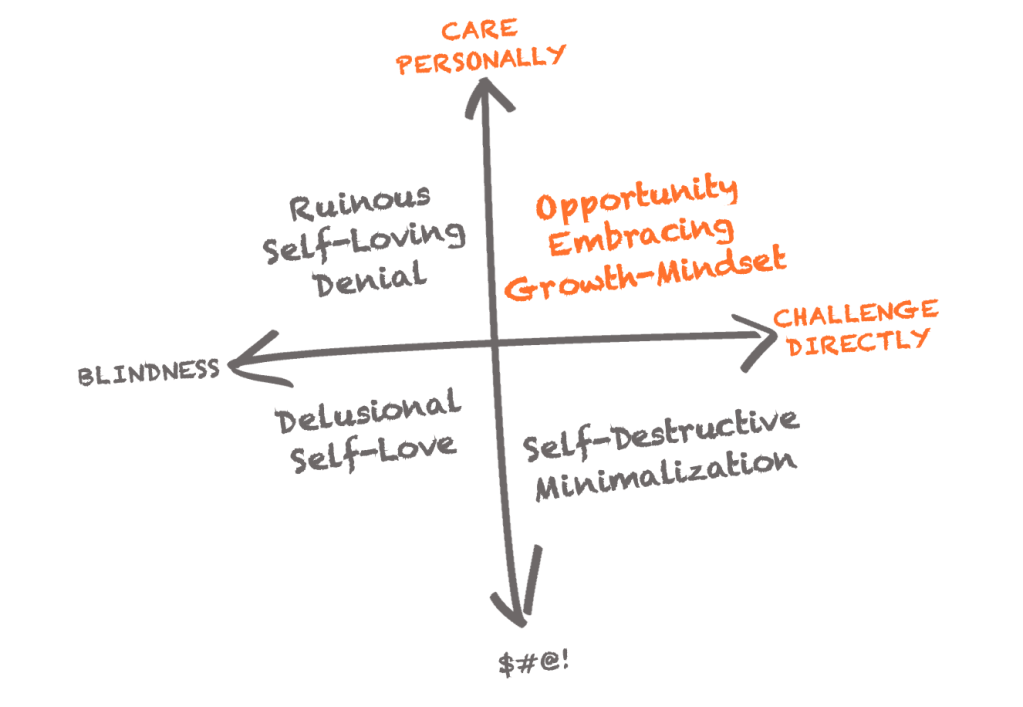Radical Candor in the Mirror

Radical Candor in the Mirror is about not being delusional or self-destructive. Instead, it’s about recognizing opportunities for continuous growth within ourselves. It’s about positive self-reflection.
When we think of looking in the mirror, we often think of Narcissism. This is Delusional Self-Love and seeing ourselves as far better and above all others with no need or room for growth. However, we also know we can beat ourselves up. We create images of not being good enough, not believing in ourselves, seeing how everyone else is better. This lacking of hope, giving up and seeing no way out is Self-Destructive Minimalization of who we are and what we’re capable of. Sometimes, we experience the temptation to pump ourselves up and remind ourselves of how wonderful and great we are. We may feel we are protecting ourselves and lifting ourselves up through self-empathy in what is often Ruinous, Self-Loving Denial.

There is an alternative to all of these. We can choose an Opportunity Embracing Growth-Mindset. We allow ourselves to look into the mirror seeking areas of improvement while recognizing we have within ourselves the ability to continuously and incrementally improve on our journey of Human Transformation. Framing this in Kim Scott’s Radical Candor 2×2 allows us to leverage Scott’s insights. We can be radically candid in giving feedback to others in service of the recipients. However, also in being radically candid with ourselves in service of ourselves by fostering a Growth Mindset within ourselves.

See Also:

My post on Radical Candor, Meaningful Conversations speaks to empathetically applying radical candor to others.
What the Mirror Can Teach You About Yourself: Advice from a Mirror Gazing Expert
After writing this post on Radical Candor in the Mirror, I discovered some related posts by Tara Well in Psychology Today and other sources. Dr. Tara Well is an associate professor of psychology at Barnard College of Columbia University where she developed the mirror-based meditation called “a revelation” in the New York Times.
- What Mirror Meditation Can Teach You – Coming face-to-face with yourself is powerful.
- Why Looking in the Mirror Can Help Fight Despair – A counterintuitive approach to dealing with a new reality
- Why Is Seeing Your Own Reflection So Important? Four research findings from neuroscience that you need to know
- Compassion at the Mirror – Does it really work?
- Mirror Meditation – A research-based meditation
- Podcast X91: Mirror Meditation for Self-Reflection and Seeing Your True Self with Tara Well
- Podcast: Dr. Tara Well, PhD – Psychologist, Mirror Meditation Expert, and TED Speaker
- Book: Mirror Meditation: The Power of Neuroscience and Self-Reflection to Overcome Self-Criticism, Gain Confidence, and See Yourself with Compassion
- TEDx Talk: What Mirror Meditation Can Teach You